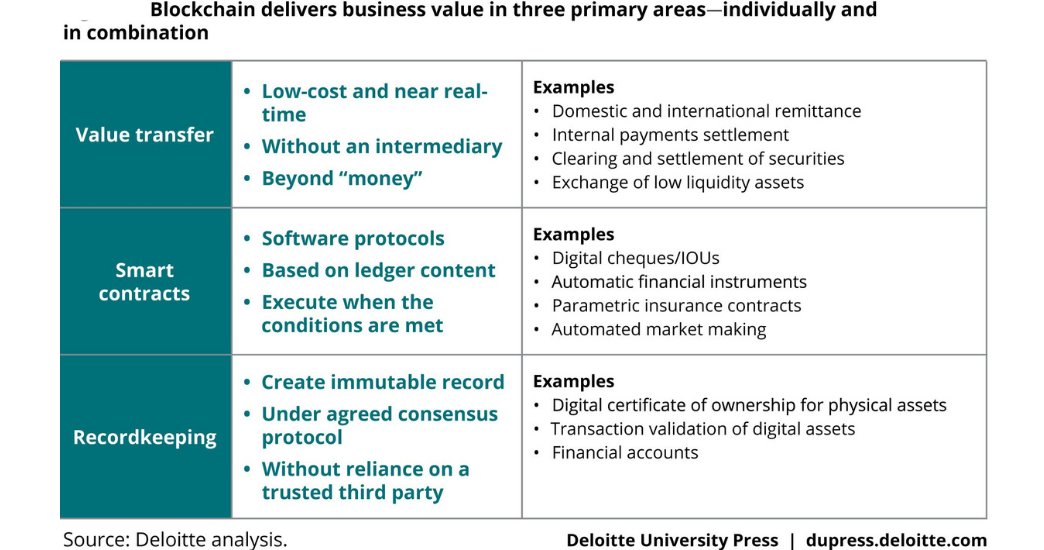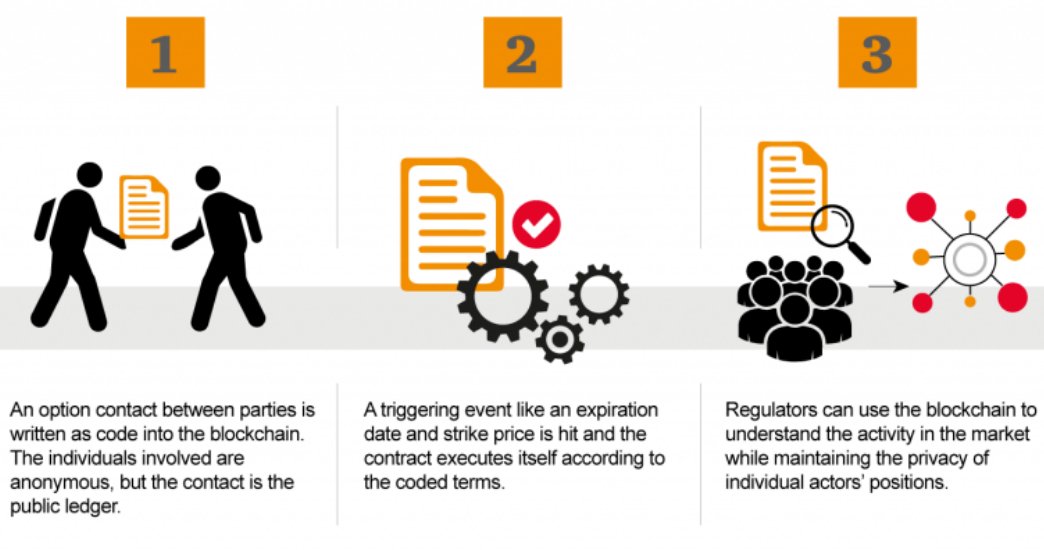-
Blockchain and smart contracts are emerging technology concepts for CIOs, CEOs, and CTOs. From healthcare to financial services, blockchain technology and its applications enable industries to achieve traceability, increase transparency, enhance security, and boost operational performance. The digital transformation capability of this promising technology is noteworthy. Thereby, even key players in healthcare, real estate, automobile, insurance, and financial services are trusting blockchain technology and smart contract development services to generate value in the business network.
Blockchain Technology
Blockchain is a type of distributed ledger technology that offers a stable and effective network comprising an increasing list of transactional data records stored and maintained in a decentralized and immutable way. Once registered on the blockchain network and executed by a smart contract solution, transactions become irreversible and irrevocable.
Smart contract powered immutability and irrevocability play a significant role in realizing blockchain-enabled capabilities. Service providers can eliminate risks of data temperature, hacks, and threats with these features, generate productivity by bypassing intermediaries from company operations, and run a trusted peer network.

Blockchain Smart Contracts
A smart contract is a computer protocol that automatically performs, enforces, and verifies company rules encoded in a digital business agreement. Once executed, stakeholders cannot change, adjust, or manipulate predefined business rules. Fundamentally, it gets deployed with the blockchain solution to ensure the network's authentic flow of information.
However, now, as per the mutual consent of all transacting parties, a few blockchains permit rules modifications. Various consensus tools and features built on blockchain technology accelerate smart contract solution's sustainability.
Proof-of-work (PoW), proof-of-stake (PoS), byzantine fault-tolerant (BFT), and recommended notary nodes are some standard DLT based verification methods (consensus algorithms).

Source: PWC
Also, Read | Smart Contract Solutions for Business | Advantages and Use Cases
Smart contracts, Blockchain Technology, and Business
From healthcare to financial services, decentralized or approved applications powered by blockchain smart contract solutions may achieve efficiencies with security and trust across processes, including supply chain, payments, identity management, and more. For example, with an automated solution, a blockchain-based smart contract may replace traditional escrow service.
Smart Contract Advantages
Trust
To ensure confidence in transactions and avoid data changes, organizations get features such as irrevocability, peer-to-peer transactions, and cryptographic security implementations.
Verifiability of Transactions
It has the provisions to invoke while preserving immutability, any transaction ever stored on the database for verification and audit scenarios.
No middlemen
In order to minimize transaction costs, accelerate data transfers and improve security, smart contracts remove intermediaries from the financial ecosystem.
Also, Read | Accelerating Business Efficiency with Blockchain Smart Contracts
Applications of Blockchain Smart Contracts in Business
Smart contracts bring accountability, traceability, and automation of procedures, fast and simplified contract execution, cost-effective processes. Smart contract solutions lead to the removal of unnecessary third parties and thus the intermediary fee. Elimination by third parties depends on the business processes, however. It provides features like irrevocability, peer-to-peer transactions, and cryptographic protection to ensure confidence in transactions and prevent data changes. Also, it has provisions to invoke any transaction for verification and audit scenarios ever stored on the database while maintaining immutability. Eventually, it removes intermediaries from the transactional environment and processes to reduce transaction costs, speed up data transfers, and improve security.
Also, Read | Blockchain Smart Contracts Development in Your Business
How it Works
Blockchain developers code smart contract-based business rules to define and monitor any prospective outcome of a transaction. It can, for example, control various scenarios, including what happens if the shipment arrives on schedule at the manufacturer's end, it gets delayed or goes missing, a delay occurs due to customs, or in real-time, the exchange rate fluctuates.
Upon the fulfillment of business conditions, like timely delivery, a smart agreement automatically executes payment. It reverts funds from an escrow account to an account of a concerned party if there is no delivery.
Smart contracts are trustworthy and can transfer blockchain legal contracts effectively. Without human involvement and any prejudice, they can be partially or entirely executable or enforceable.Also, Read | Making Your Business Smart with Blockchain Smart Contracts
Additional steps to double the legitimacy and security of transactions based on smart contracts:
- KYC and AML procedures for verification
- Irrevocability instantly
- Automated smart contract execution
Now, let's explore blockchains that provide the framework for building successful fintech services based on smart contracts:
Smart Contract Development Platforms
A variety of open-source blockchain technology and smart contract development platforms are Ethereum, Hyperledger Fabric, and R3 Corda. They have gained a significant reputation for enabling innovative smart contract development solutions. Here are a few of their benefits most applicable to banks and other financial organizations.
R3 Corda
For financial institutions such as banks and insurance companies, the Corda blockchain is a distributed ledger technology for creating privately accepted solutions. With a smart contract approach, it seeks to automate legal prospects. It can, in other words, replace legal paperwork entirely.
Corda's private ledger technology allows information about every transaction (and every smart contact) in the network to be selectively accessible with permission. It improves privacy and enhances productivity as not all peers in the Corda network share the transaction information. Instead, they are only open to parties directly interested in a specific transaction.
Corda's smart contracts also have a provision for establishing notary nodes for business-critical transactions developed as third party transaction verifiers. As public financial regulators, auditors, banks, and other agencies, these authenticated digital notaries may act.
Ethereum Blockchain
It was the Ethereum Network that brought smart contracts into the real world as autonomous agents. It uses the Ethereum Virtual Machine (EVM) for the validation and execution of a smart contract. EVM refers to a network of nodes and miners ensuring that no one is cheating.
The main thing that separates Ethereum and R3 Corda blockchain application creation are their processes of consensus. Although Corda uses notaries for transaction verification, Ethereum smart contracts use proof-of-work (PoW) methods. There are also discussions on Ethereum smart contracts that incorporate alternatives such as proof-of-stake (PoS) and other frameworks.
What Do We do?
Indeed, institutions can benefit from blockchain technologies like Ethereum, Corda, or Hyperledger. Our smart contract development experts at Oodles provide services to build custom distributed ledger-based smart contract solutions for your business requirements. Our blockchain team develops custom solutions to provide greater control over processes and minimize transaction costs.

Our Offices
INDIA
Emaar Digital Greens, Sector 61,
Gurugram, Haryana
122011.
Welldone Tech Park,
Sector 48, Sohna road,
Gurugram, Haryana
122018.














